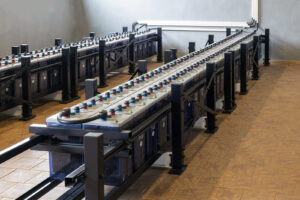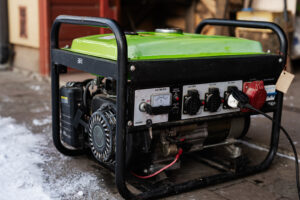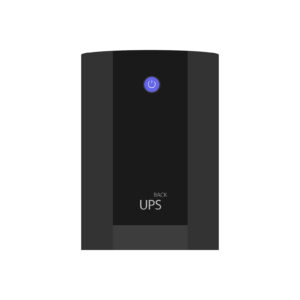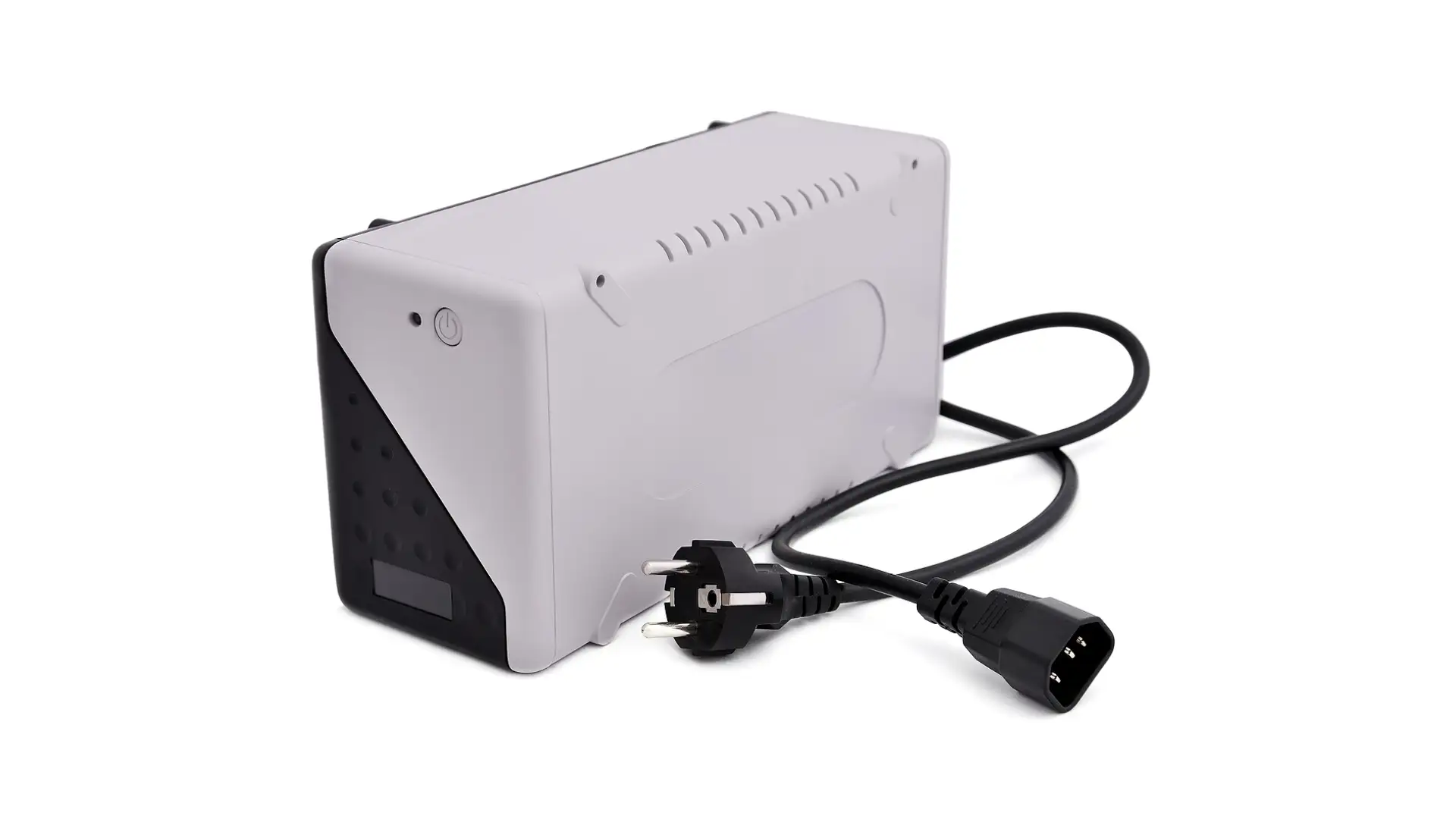
Uninterruptible Power Supply vs. Backup Generators
As someone who has felt the frustration of power outages disrupting my daily life, I understand the importance of having a reliable backup plan. Our dependence on technology and electricity is undeniable, and when the lights go out unexpectedly, it can be a real hassle. That's why I want to share my personal insights into the two main options for backup power: uninterruptible power supply (UPS) systems and backup generators.
Having experienced both solutions, I can offer a firsthand perspective on their pros and cons, helping you decide which one suits your needs best. Whether you're concerned about protecting your electronics, keeping your home comfortable, or ensuring your work doesn't come to a halt during outages, I've got you covered. Let's explore these options together to find the ideal backup power solution that brings you peace of mind when the lights go out.

What is Uninterruptible Power Supply (UPS)?
An Uninterruptible Power Supply, commonly known as a UPS, is a vital electrical device designed to safeguard electronic equipment from power interruptions and fluctuations. This sophisticated device ensures the uninterrupted operation of critical devices such as computers, servers, networking equipment, and more.
A UPS comprises various components, with the primary feature being a backup power source, typically a rechargeable battery. When the UPS detects a disruption in the main power supply, which can result from power outages, voltage sags, or surges, it immediately and seamlessly switches to the battery power source. This switchover is so rapid, taking just milliseconds, that connected devices remain powered without experiencing any downtime.
In addition to battery backup, UPS units often incorporate other features such as surge protection and voltage regulation. Surge protection guards against sudden voltage spikes or surges that can harm sensitive electronics, while voltage regulation ensures a stable and consistent supply of electricity, mitigating issues related to under-voltage or over-voltage conditions.
UPS devices come in various sizes and capacities, allowing users to choose the most suitable model for their specific needs. Smaller UPS units may suffice for individual computers, while larger and more robust models are used in data centers and critical infrastructure to ensure the continuous operation of entire systems.
What is a Backup Generator?
A backup generator is an essential piece of equipment designed to ensure uninterrupted electrical power supply to your home or business in the event of a power outage. These devices play a critical role in maintaining the functioning of appliances, systems, and operations that rely on electricity.
Backup generators operate by converting mechanical energy into electrical energy. They achieve this through the use of various internal mechanisms and engines that are powered by different types of fuels. Common fuel sources for backup generators include gasoline, diesel, natural gas, or propane. The choice of fuel often depends on factors like availability, cost, and the specific needs of the user.
There are two primary categories of backup generators: portable generators and standby generators.
- Portable Generators: Portable generators are smaller and more affordable than their standby counterparts. They are designed for easy mobility and can be transported to different locations as needed. These generators are typically used for temporary power solutions, such as during camping trips, construction projects, or for providing limited backup power to homes or small businesses during short-term outages. Portable generators come in various sizes and power capacities, making them versatile for a range of applications.
- Standby Generators: Standby generators, also known as stationary or whole-house generators, are permanently installed on your property. They are connected directly to your electrical system and are designed to provide a reliable and continuous power supply during extended outages. Standby generators are more powerful than portable ones and can automatically start up within seconds of a power interruption, ensuring that your home or business experiences minimal disruption. They are commonly used in larger residential properties, commercial buildings, healthcare facilities, and other critical infrastructure settings where uninterrupted power is crucial.

Pros and Cons of Uninterruptible Power Supply
Uninterruptible Power Supply (UPS)
Pros:
- Instantaneous Response: UPS systems exhibit an almost instantaneous response, swiftly switching to backup power sources within milliseconds. This ensures minimal disruption to your connected devices and prevents data loss during power outages.
- Protection Against Power Fluctuations: UPS systems offer voltage stabilization capabilities, effectively shielding sensitive equipment like computers and servers from power fluctuations, surges, and sags. This helps in preventing hardware damage and data corruption.
- Scalability: UPS systems can be easily scaled to meet your specific backup power needs. Whether you require minutes or hours of backup power, UPS systems can be tailored accordingly.
- Quiet Operation: Unlike backup generators, UPS systems operate silently. Their noiseless operation makes them well-suited for indoor environments, such as offices and data centers.
Cons:
- Limited Runtime: UPS systems rely on batteries for backup power, which have a finite capacity. The runtime is typically limited to several hours, making them less suitable for prolonged power outages without additional measures.
- Battery Maintenance: UPS batteries require regular maintenance and eventual replacement, which can add to the long-term operational costs. Neglecting battery maintenance can lead to reduced effectiveness during power interruptions.
- Initial Investment: High-quality UPS systems, especially those with larger capacities, can represent a significant upfront investment. This initial cost can be a barrier for some users, although it is offset by the protection they offer.
Backup Generators
Pros:
- Extended Runtime: Backup generators excel in providing power for extended periods, making them ideal for situations where long-term power outages are expected, such as during severe weather events or disasters.
- High Power Capacity: Generators can supply electricity to larger loads, including entire homes, businesses, and critical infrastructure. This high power capacity ensures essential operations can continue uninterrupted.
- Fuel Availability: As long as a generator has access to fuel, it can continue generating power. This makes generators a reliable option, especially when fuel sources are readily available.
Cons:
- Noise and Emissions: Generators can be noisy and emit exhaust fumes, making them less suitable for indoor use or residential areas. Their noise levels and emissions can be a nuisance and even a health concern in certain environments.
- Maintenance: Generators require regular maintenance, including oil changes, filter replacements, and general servicing, to ensure reliable and efficient operation. Neglecting maintenance can lead to breakdowns when you need them the most.
- Slow Response Time: Generators have a slower response time compared to UPS systems. They can take seconds or even minutes to start and provide power, which can be problematic for sensitive equipment that requires uninterrupted power.

Comparing UPS and Backup Generators – Key Factors to Consider
When it comes to ensuring uninterrupted power supply during outages or fluctuations, you have two primary options to consider: Uninterruptible Power Supply (UPS) systems and backup generators. Choosing the right solution for your specific needs involves evaluating various factors. Below, we delve into these key considerations to help you make an informed decision:
Backup Time Requirements
The first critical factor to consider is the duration for which you require backup power. If you primarily need protection against short-term power interruptions or minor fluctuations, a UPS system might be the more suitable choice. However, if you anticipate extended outages, especially in areas prone to severe weather events or frequent power failures, a backup generator could prove to be the better option for sustaining power over longer periods.
Load Capacity
Assessing your power needs is paramount. UPS systems are well-suited for safeguarding individual devices or small network setups. In contrast, backup generators are designed to handle larger loads, such as an entire household or business premises. Accurately determining the load capacity requirement is crucial to ensure your chosen solution can meet your power demands effectively.
Budget Considerations
Budget constraints play a significant role in your decision-making process. The initial investment for a UPS system or a backup generator can vary widely based on their size and capacity. While the budgetary aspect is essential, it's also vital to factor in the long-term costs associated with maintenance and battery replacement for UPS systems, as well as fuel and maintenance costs for backup generators. A comprehensive cost analysis should inform your choice.
Space Constraints and Noise Concerns
Evaluate the available space for installation and potential noise concerns. UPS systems are typically compact and operate silently, making them suitable for environments with limited space or where noise is a critical factor. In contrast, backup generators require more space for installation and can generate noise during operation, which may not be suitable for all settings.
Sensitive Equipment
If you are protecting sensitive electronic equipment that demands a stable and clean power supply, a UPS system offers advantages. UPS systems provide protection against power fluctuations and deliver instantaneous backup power during outages, ensuring the uninterrupted operation of sensitive devices. Backup generators, while robust, may not offer the same level of power stability and can have a delayed start-up, potentially causing issues for sensitive equipment.
Choosing the Right Solution for Your Needs
Assess Your Power Backup Needs
Start by conducting a thorough assessment of your power requirements. Consider the specific devices that need protection, the expected duration of potential outages, and any unique concerns related to sensitive equipment. This evaluation will serve as the foundation for selecting the most suitable solution.
Consult a Professional
To make an informed decision tailored to your circumstances, it's advisable to seek the expertise of a professional. An electrician or a power backup specialist can assist in evaluating your options, recommending appropriate equipment, and ensuring correct installation, thereby enhancing the reliability and performance of your chosen power backup solution.
Consider a Hybrid Solution
In some scenarios, a hybrid approach that combines both UPS and backup generator systems can provide the ultimate power reliability. With this setup, a UPS system delivers instant backup power for short-term interruptions, while a backup generator seamlessly takes over during extended outages, ensuring continuous power supply for all your devices. This hybrid solution maximizes reliability and minimizes downtime.
FAQs
Q1: Do I need a UPS if I have a backup generator?
A1: Having both a UPS (Uninterruptible Power Supply) and a backup generator can provide comprehensive power backup solutions, but their roles differ. A UPS is typically used for short-term power interruptions, bridging the gap between a power outage and when a backup generator kicks in. It ensures uninterrupted power to sensitive electronic equipment during brief disruptions or while the generator starts. If you have critical devices or require seamless power transitions, having both a UPS and a generator is advisable for optimal protection.
Q2: What is the difference between backup power and UPS?
A2: Backup power and UPS serve distinct purposes. Backup power generally refers to any system or device that provides electricity when the primary power source fails. This can include generators, battery backups, or other alternative power sources. On the other hand, a UPS, or Uninterruptible Power Supply, is a specific type of backup power system that uses batteries to supply immediate and continuous power to connected devices during brief power interruptions or until a generator or alternate power source takes over. UPS systems are designed to prevent data loss, equipment damage, and downtime during these short outages.
Q3: Is a generator an uninterruptible power supply?
A3: No, a generator is not an uninterruptible power supply (UPS). While both provide backup power during electrical outages, they function differently. A generator generates electricity, often running on fuel like gasoline, diesel, or natural gas, and requires a startup time when the main power fails. This means there may be a brief interruption during the transition from mains power to generator power. In contrast, a UPS uses batteries to instantly provide seamless power when the main supply is interrupted, ensuring uninterrupted operation of connected devices without any downtime.
Q4: Which is better, battery backup or generator?
A4: The choice between a battery backup (UPS) and a generator depends on your specific needs and priorities:
- Battery Backup (UPS):
- Better for protecting sensitive electronics like computers and servers from brief power interruptions.
- Provides instant power without downtime during short outages.
- Limited runtime, typically ranging from minutes to a few hours, depending on the UPS capacity and connected load.
- Ideal for maintaining data integrity and preventing equipment damage.
- Generator:
- Suitable for longer power outages, providing continuous power for extended periods.
- Requires time to start and switch over, causing a brief interruption during the transition.
- Often used for larger-scale backup power needs, such as powering an entire home or business.
- Runs on various fuels and can be more cost-effective for extended outages.
Q5: Can I use a UPS with a backup generator simultaneously?
A5: Yes, it is possible to use a UPS in conjunction with a backup generator. This combination provides a comprehensive backup power solution. The UPS can offer immediate power during the transition between the mains power outage and when the generator starts running. It helps maintain uninterrupted power to critical devices, ensuring a seamless switchover.
Q6: How long does a UPS battery last during a power outage?
A6: The runtime of a UPS battery during a power outage depends on several factors, including the capacity of the UPS, the load connected to it, and the condition of the battery. UPS systems typically provide power for a few minutes to a few hours. Smaller desktop UPS units may offer shorter runtimes, while larger rack-mounted or tower UPS systems with external battery packs can provide longer backup times.
Q7: Can a UPS protect against power surges and voltage fluctuations?
A7: Yes, UPS units often include surge protection and voltage regulation features. They can help safeguard connected devices from power surges, spikes, and voltage fluctuations, which can occur even when the main power supply is not completely lost. This protection is valuable for preventing damage to sensitive electronics.
Conclusion
In my personal journey of dealing with frustrating power outages, I've come to understand the importance of having a reliable backup power solution. Whether you're protecting your valuable electronics, ensuring your home's comfort, or keeping your work uninterrupted, the choice between an Uninterruptible Power Supply (UPS) system and a backup generator depends on your unique needs.
For those facing short-term power interruptions and seeking immediate protection for their devices, a UPS system offers a swift and stable solution. However, it's essential to keep in mind the limitations of UPS systems, including their runtime and the need for battery maintenance. On the other hand, if you anticipate extended outages or need to power an entire property, a backup generator can provide the necessary resilience. Yet, it's crucial to consider factors like maintenance and noise, which may impact your choice based on your environment.
Ultimately, the goal is to find the backup power solution that brings you peace of mind when the lights go out. By evaluating your specific requirements, consulting professionals, and possibly considering a hybrid approach, you can ensure that you're well-prepared to tackle unexpected power disruptions, just as I have learned to do through my own experiences.
Sources
Schneider Electric. (n.d.). UPS systems and backup power systems. Retrieved from https://www.apc.com/us/en/faqs/FA157448/
Consumer Reports. (n.d.). Generator buying guide. Retrieved from https://www.consumerreports.org/cro/generators/buying-guide/index.htm
CyberPower Systems. (n.d.). UPS system buying guide. Retrieved from https://www.cyberpowersystems.com/tools/ups-selector/
continue reading
Related Posts
Uninterrupted Power Supply For Computer In today’s fast-paced and digitally […]
Uninterruptible Power Supply For TV In the digital age, our […]
Uninterruptable Power Supply Company In my daily life, both personally […]



